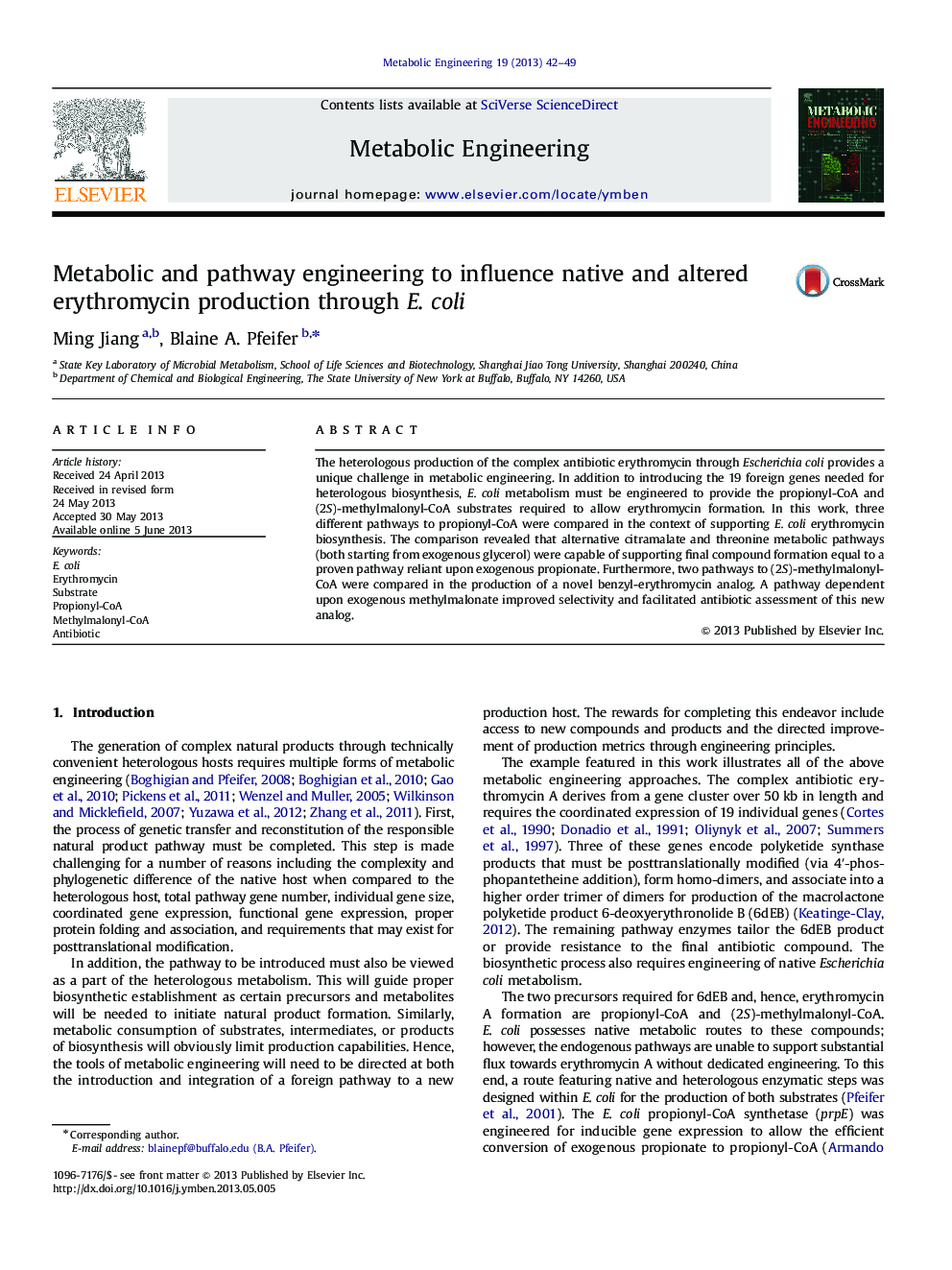| Article ID | Journal | Published Year | Pages | File Type |
|---|---|---|---|---|
| 6494720 | Metabolic Engineering | 2013 | 8 Pages |
Abstract
The heterologous production of the complex antibiotic erythromycin through Escherichia coli provides a unique challenge in metabolic engineering. In addition to introducing the 19 foreign genes needed for heterologous biosynthesis, E. coli metabolism must be engineered to provide the propionyl-CoA and (2S)-methylmalonyl-CoA substrates required to allow erythromycin formation. In this work, three different pathways to propionyl-CoA were compared in the context of supporting E. coli erythromycin biosynthesis. The comparison revealed that alternative citramalate and threonine metabolic pathways (both starting from exogenous glycerol) were capable of supporting final compound formation equal to a proven pathway reliant upon exogenous propionate. Furthermore, two pathways to (2S)-methylmalonyl-CoA were compared in the production of a novel benzyl-erythromycin analog. A pathway dependent upon exogenous methylmalonate improved selectivity and facilitated antibiotic assessment of this new analog.
Related Topics
Physical Sciences and Engineering
Chemical Engineering
Bioengineering
Authors
Ming Jiang, Blaine A. Pfeifer,
